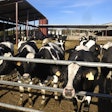
Brazil’s Office of the Superintendent General (SG) at the Administrative Council for Economic Defense (CADE) has launched an administrative proceeding against associations and companies that are members of the Soy Working Group.
The proceeding was initiated on August 18 against the Brazilian Association of Vegetable Oil Industries (ABIOVE) and the Brazilian National Association of Grain Exporters (ANEC), among other 30 export companies, known as trading companies.
The investigation was launched after a complaint from the Agriculture, Livestock, Supply, and Rural Development Committee of the Brazilian Chamber of Deputies. The document stated that the signatories of the Soy Moratorium agreed not to purchase soybeans from producers with cultivated areas in deforested regions of the Amazon biome after 2008. This agreement, signed among companies in the sector, applies exclusively to soy, without covering other types of cultivation.
According to the investigation, competing private companies created the Soy Working Group to monitor the market and facilitate an agreement that would establish conditions for the purchase of the commodity in Brazil.
Therefore, the SG understands there is an anticompetitive agreement among competitors, which harms soy exports. Thus, an interim measure was adopted, ordering the Soy Working Group to refrain from collecting, storing, sharing or disseminating commercial information related to the sale, production or purchase of soybeans, and from carrying out audits. The group members must also refrain from sharing reports, lists, and documents that exploit the agreement, in addition to removing the disclosed documents related to the moratorium from their websites.
The interim measure is provided by law and is adopted whenever there is an indication that the conduct under investigation may cause irreparable damage to the market, damage that is difficult to repair or that will render the outcome of the proceedings ineffective.
According to the SG, if proven, these practices result in the acquisition of products under unfavorable conditions or at prices above those that would be found in competitive markets.
The defendants were notified to file an answer. After the discovery phase, the SG is to issue a final opinion and submit the case to the tribunal of CADE. In addition, there is still the possibility of CADE signing a cease-and-desist agreement with the defendants. If convicted, the associations may be subject to fines ranging from BRL50,000 to BRL2 billion (US$9,105 to US$364 million). For the companies, fines range from 0.1% to 20% of their turnover in the year prior to the launch of the administrative proceeding.


















